How Hjh Maimunah’s founder started her famous nasi padang chain, from humble shophouse to large business
Mahiran Abdul Rahman named her nasi padang restaurant after her mother, Hajah Maimunah Abdul Karim. In this National Day series by CNA Women, she recounts what it was like to be an entrepreneur in the 90s and the advice her mother gave about life and business.
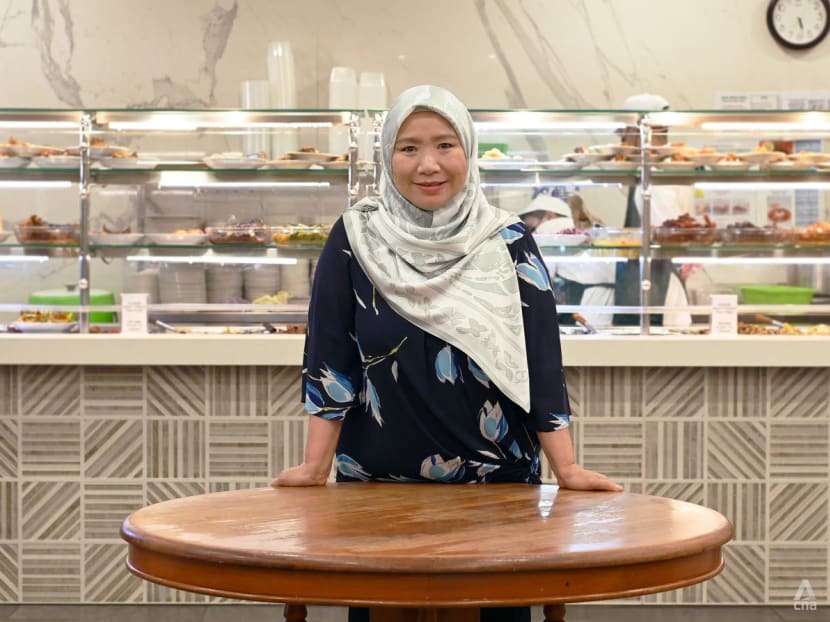
Inspired by her mother, for whom the restaurant is named, Mahiran Abdul Rahman started Hjh Maimunah in 1992, when she was 27. (Photo: CNA/Joyee Koo)
The popular Hjh Maimunah restaurant, known for its nasi padang, started in a humble shophouse in Jalan Pisang in the 1990s and has grown into a seven-outlet chain with restaurants in Woodlands, Raffles Quay and Tampines, in addition to a catering arm.
The halal restaurant is known for serving up classic Malay dishes such as beef rendang, lemak siput sedut (sea snails in spicy creamy coconut gravy) and local kueh such as putri salat and kueh lapis. It is also on the 2023 Michelin Bib Gourmand list – which awards restaurants that provide an outstanding gourmet experience at a reasonable price – and has been since 2019.
Named after the founder’s mother, Hjh Maimunah restaurant is the pride of 58-year-old Mahiran Abdul Rahman, who started the venture back when Jalan Pisang was a bare alley with little commercial activity.
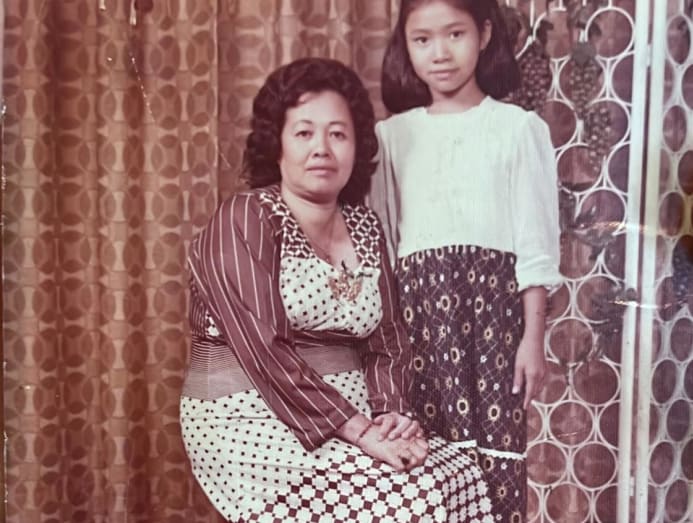
Growing up, Mahiran was close to her mum, the late Hajah Maimunah Abdul Karim. Mahiran has an older sister who is 18 years old than her; although by the time she was born, her sister had married and moved to Malaysia with her husband, so Mahiran grew up as an only child in the household in Geylang.
When Mahiran was nine, her parents divorced. To support herself and her young daughter, Hajah Maimunah focused on building the two businesses she had started when she was married: A Muslim pilgrimage travel agency and a catering business serving meals to local Muslim pilgrims who may miss a taste of home while in Saudi Arabia.
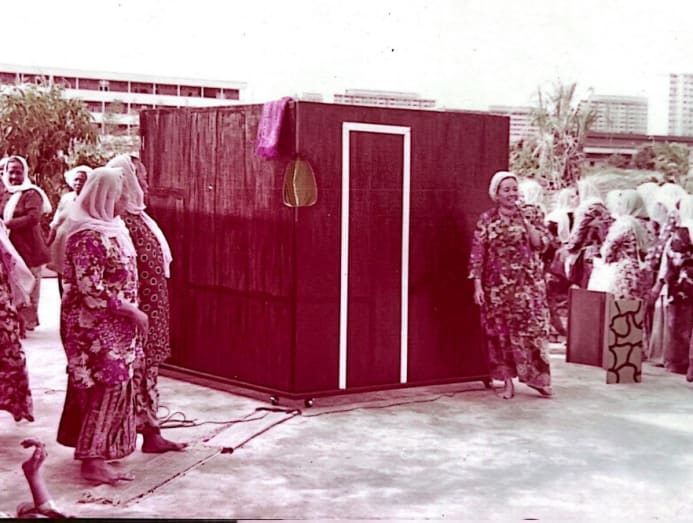
INSPIRED BY HER MUM’S BUSINESS RESILIENCE
“My mum was a superwoman,” Mahiran said. “She was a single mum when she had her businesses in the 1970s, back when it was still rare for women to even join the workforce.
“I got to see my mum work with people from China, the Middle East, Indonesia,” she added. “It was unique and inspiring.”
Mahiran herself was involved in one way or another. “Throughout my days in primary and secondary school, my mum would get me to help her with her work,” she said.
“I’d either run errands or help her cook the meals for the pilgrims.”
She reminded me I mustn’t rely entirely on my husband … I had to stand on my own two feet, too.
Raised with “tough love”, Mahiran said she was grateful for her mum’s parenting style.
“She always reminded me that as women, we must be independent,” she said. “I became strong and resilient because of her. Even after I got married when I was 18, she reminded me I mustn’t rely entirely on my husband, not because he’s irresponsible, but because I had to stand on my own feet, too.”
Related:
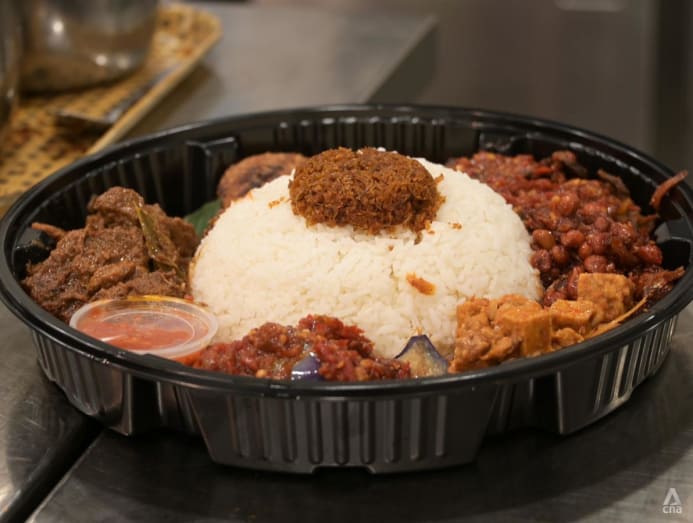
“Before my parents’ divorce, my father would often cook asam pedas for us,” Mahiran said, referring to the sour and spicy fish dish. “It was the dish we always ate together. I love so many Malay dishes but this remains my favourite dish.”
Eating together the meals her father prepared made Mahiran realise the impact of sharing meals as a family. “It was why I wanted to start something related to food,” she said. “So I can bring families and people together to eat traditional Malay food.”
Between 1988 and 1992, when Mahiran was in her mid-20s, she rented space in a small cafeteria at South Bridge Road to sell nasi padang.
“The shop did well but I wanted it to grow,” she said. “That’s where I learned more about branding and expanding my business – I dreamed of turning it into a bricks-and-mortar restaurant."
It was why I wanted to start something related to food, so I can bring families and people together to eat authentic Malay food.
When it came to naming the restaurant, there was no clearer option. Mahiran named it after her mother to honour her.
In those years, while juggling the business and parenting their four children – Ismail, nine; Mastura, eight; Maria, seven; and Ibrahim, six – Mahiran and her husband Didih Ibrahim managed to save enough money to turn her dream into reality.
Her first business lesson came when she had to decide on a location for the restaurant. Mahiran wanted to play it safe and go where the crowds were in Kampong Glam, but her mum advised her to take a risk.
“When my mum said to try one of the alleys along North Bridge Road, I was sceptical,” she said. “The busy places were Arab Street, Haji Lane or Bussorah Street – they were closer to Sultan mosque and lots of people would walk there.”
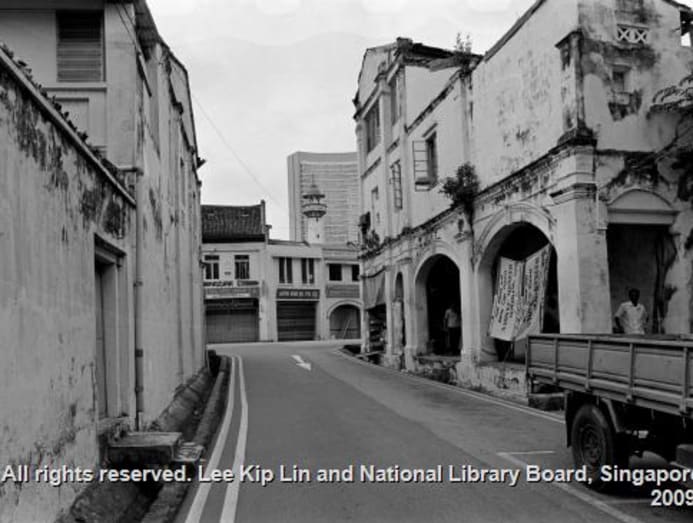
Mahiran recalled that in the 80s and 90s, the alleys along North Bridge Road were largely empty with only a few modest shophouses. People would bypass them to head to Arab Street.
But her mum was more optimistic. “I remember her telling me that because the place and country will grow, people will eventually visit the alleys too,” Mahiran said.
“Though I had doubts, I trusted my mum,” she said. “I followed her advice and picked Jalan Pisang as the location for my restaurant.” Hjh Maimunah opened in 1992, when Mahiran was 27.
The early years were exciting but daunting. Without today’s internet, it was difficult to source for things that could help the restaurant, such as food suppliers or logistics support in Singapore, she said.
“But my husband and I worked hard, sometimes only coming home to our kids after 3am,” she added.
Her late mum’s hunch was spot on. Today, Jalan Pisang and the other alleys along North Bridge Road, such as Jalan Kledek and Jalan Klapa, are filled with eateries, cafes, clothes shops and bakeries, attracting both locals and tourists.
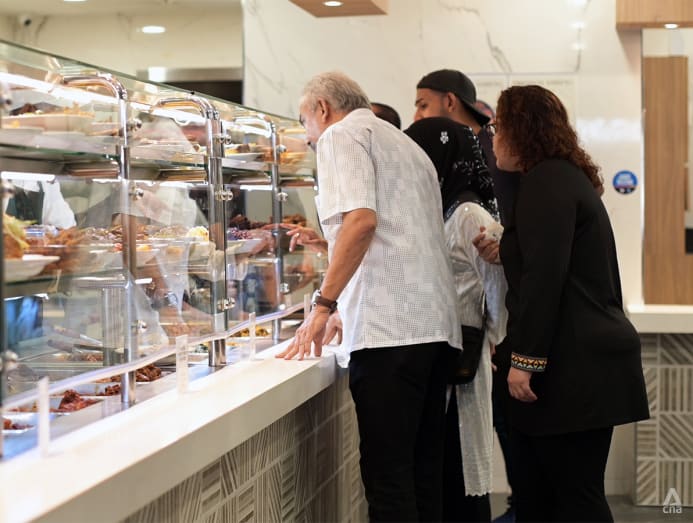
In 1996, the same year her youngest child, daughter Maryam, was born, Mahiran’s mum passed away.
“I remember feeling lost,” Mahiran recalled. “Though I had started the business and I had my husband and 10 staff members supporting me, my mum was still a source of my strength. I still miss her every day.”
Without her mum around, Mahiran had to make tough decisions on her own. As the world entered the noughties, she had a clearer target audience – the average Singaporean food-loving family. She also wanted to scale the business as much as possible.
In 2006, 14 years after Jalan Pisang, she opened another – and bigger – outlet in a shophouse at Joo Chiat.
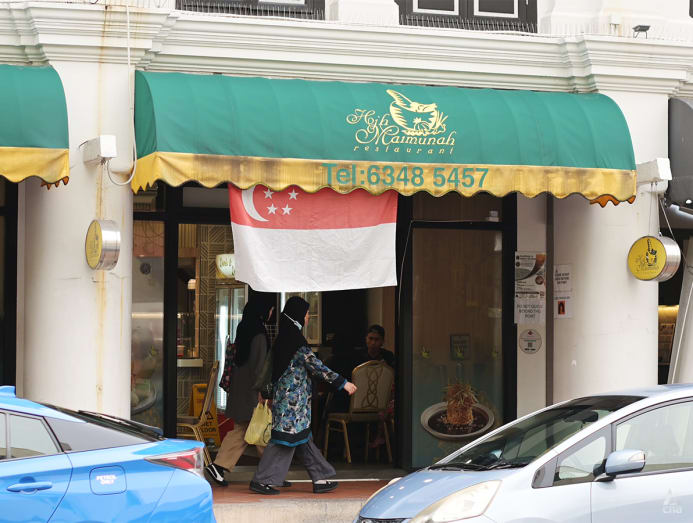
“Joo Chiat is close to where I was raised,” she said. “The area also holds important cultural heritage for Malays – I just knew that it had to be the next location, no matter how much it cost.
“I think my mum would have approved of my choice too,” she said. “Even though she didn’t get to see it, I’m happy that her legacy as a local businesswoman gets to live on in Hjh Maimunah, the restaurant.”
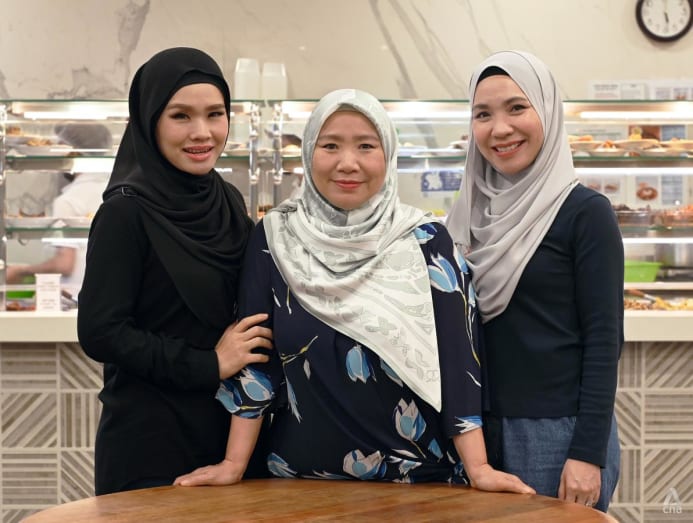
“I believe in the efforts of family,” Mahiran said. “The restaurant wouldn’t have happened if not for my mother, and my husband helped a lot in making it a reality.
Mahiran wanted to develop in her children the same traits her mother honed in her: A spirit of independence and resilience. The way to do it was to get her children familiar with the business.
“All my children have experience working in the restaurant,” she said. “Since the 90s, when my kids were as young as in primary school, I made them run simple errands, like counting our earnings for the day or following me to meet suppliers.”
“It was also a way to spend time together,” Mahiran said. “My husband and I were very busy, so when everyone was at either the Jalan Pisang or Joo Chiat outlet, we could see one another and know how everyone’s doing.”
“But when they got older, they had ideas of their own for the restaurant,” Mahiran said. “They’d suggest this new thing or recommend a different way of serving the food and there was friction and a lot of disagreements. But looking back, it touches me that everyone had a business mindset.”
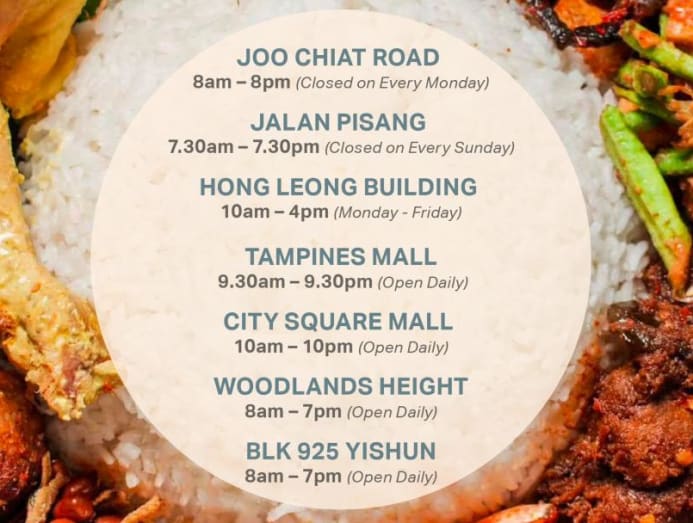
In 2018, Mahiran passed the mantle of managing the restaurant to her second child, Mastura, who is also the eldest daughter.
While the 37-year-old is the general manager, the other children are involved in other areas, from staffing, food quality control, logistics, branding and publicity. Mahiran serves as an advisor and mentor.
“I know my daughter intends to expand further across Singapore,” Mahiran said. “And while it was hard at first to let her take charge, I know she wants the best for this local business, so I’m proud of her and how it’s grown.
Editor’s note: The headline has been updated to reflect that Hjh Maimunah is not a franchise but a wholly owned family business.
Read this story in Bahasa Melayu here.
From a humble shophouse in Jalan Pisang in the 1990s to a seven-outlet chain and a catering arm and some Michelin recognition, the halal restaurant known for its Malay dishes has come a long way. CNA Women learns more about the women behind Hjh Maimunah.
CNA Women is a section on CNA Lifestyle that seeks to inform, empower and inspire the modern woman. If you have women-related news, issues and ideas to share with us, email CNAWomen [at] mediacorp.com.sg (CNAWomen[at]mediacorp[dot]com[dot]sg).











